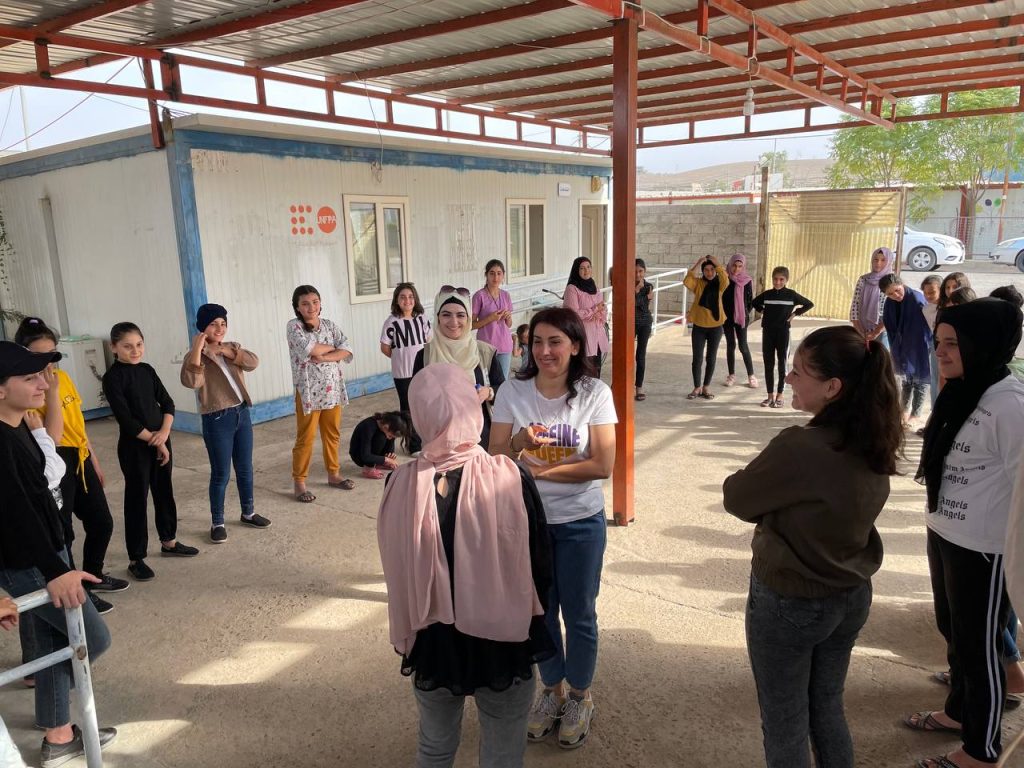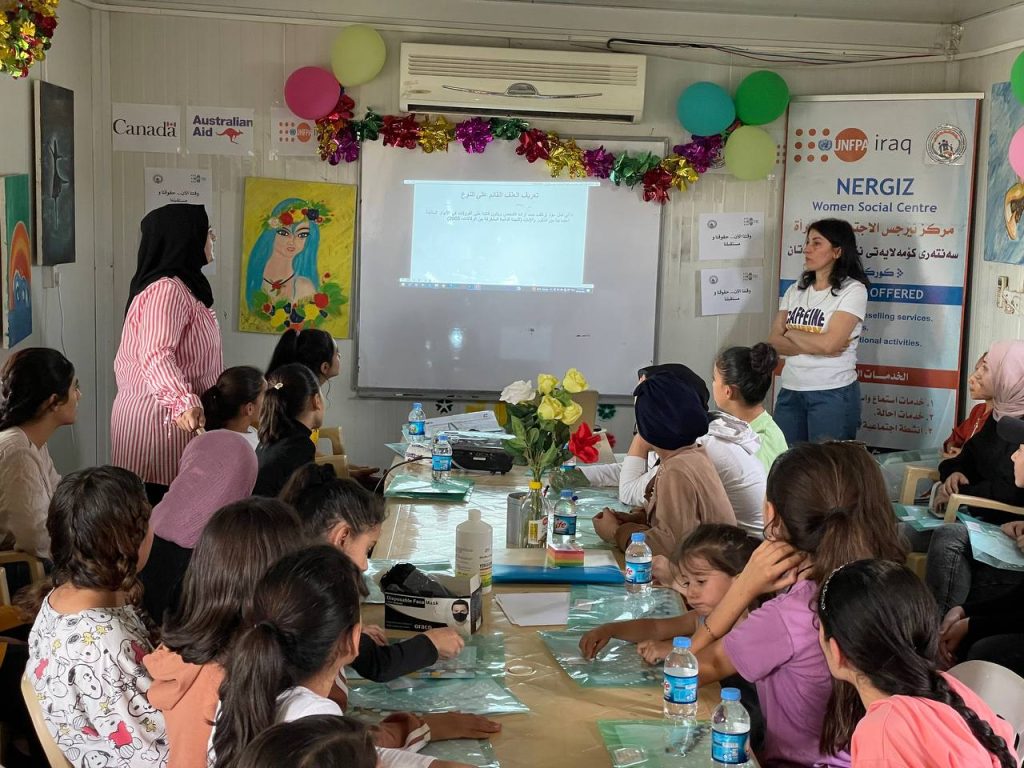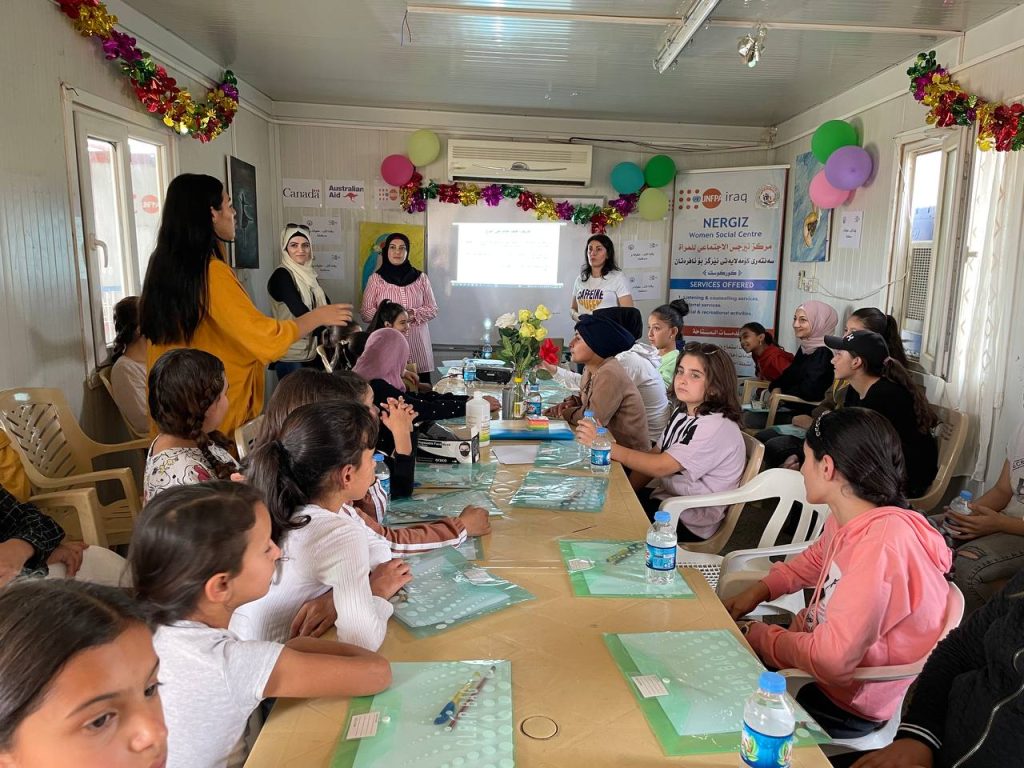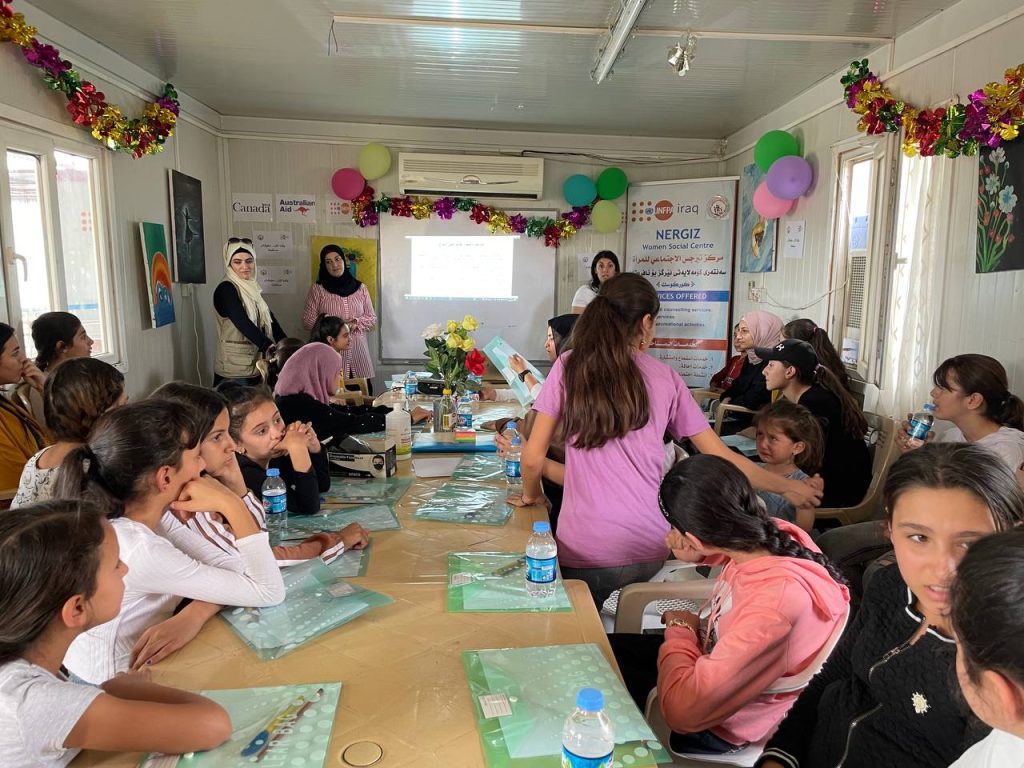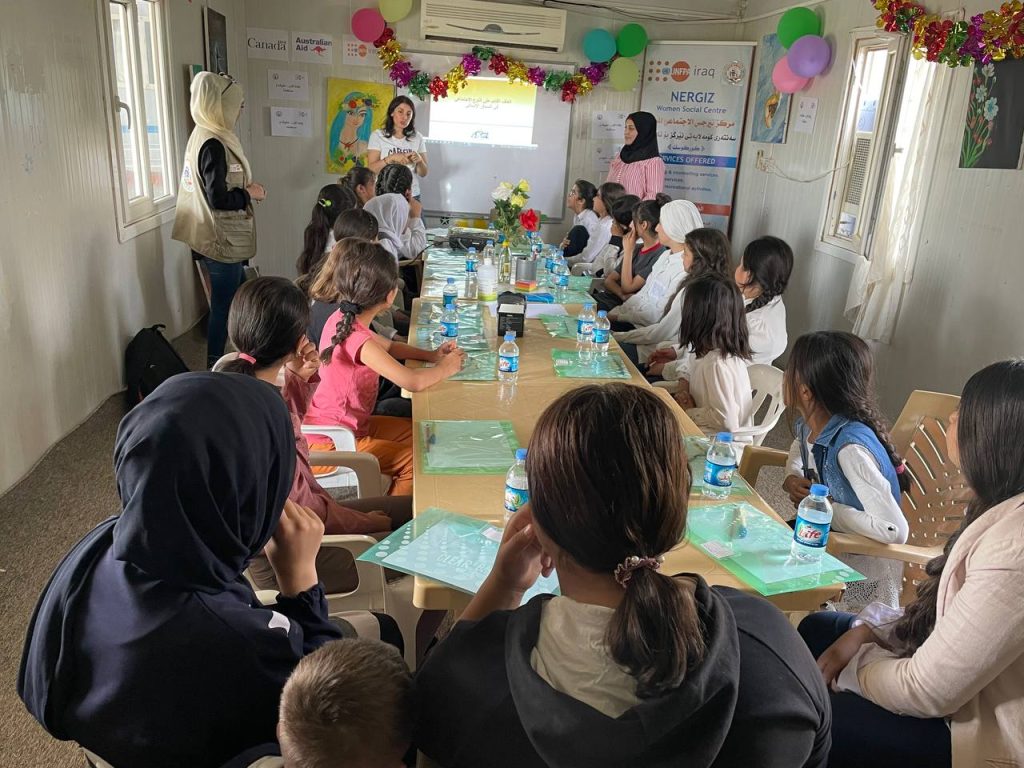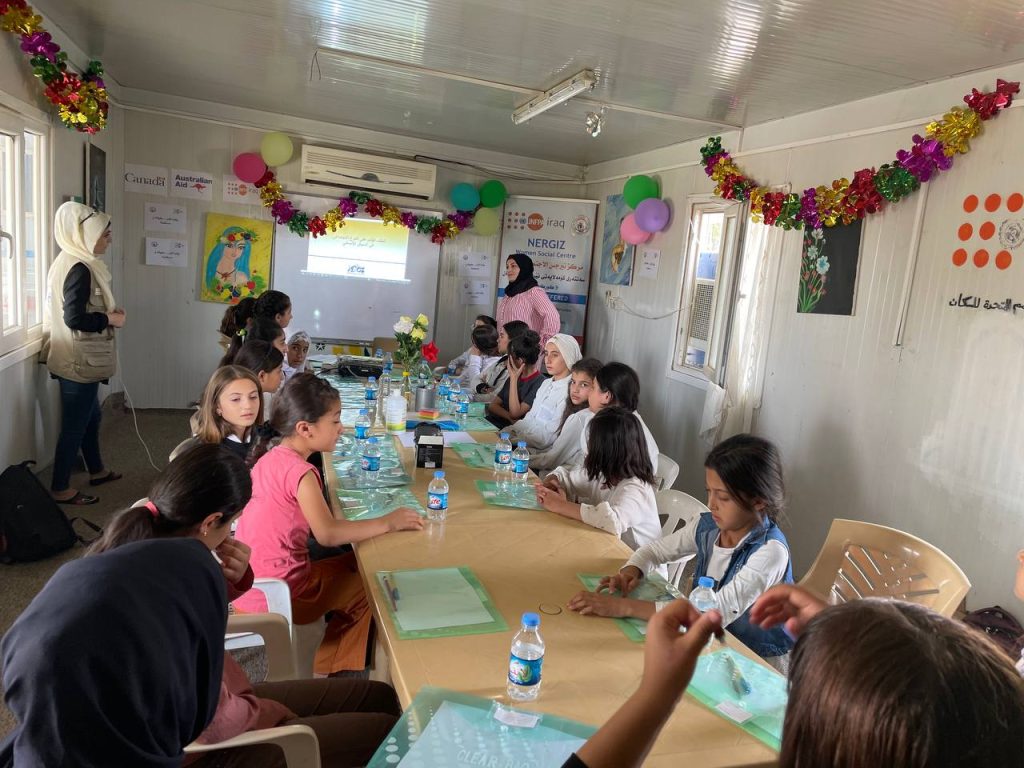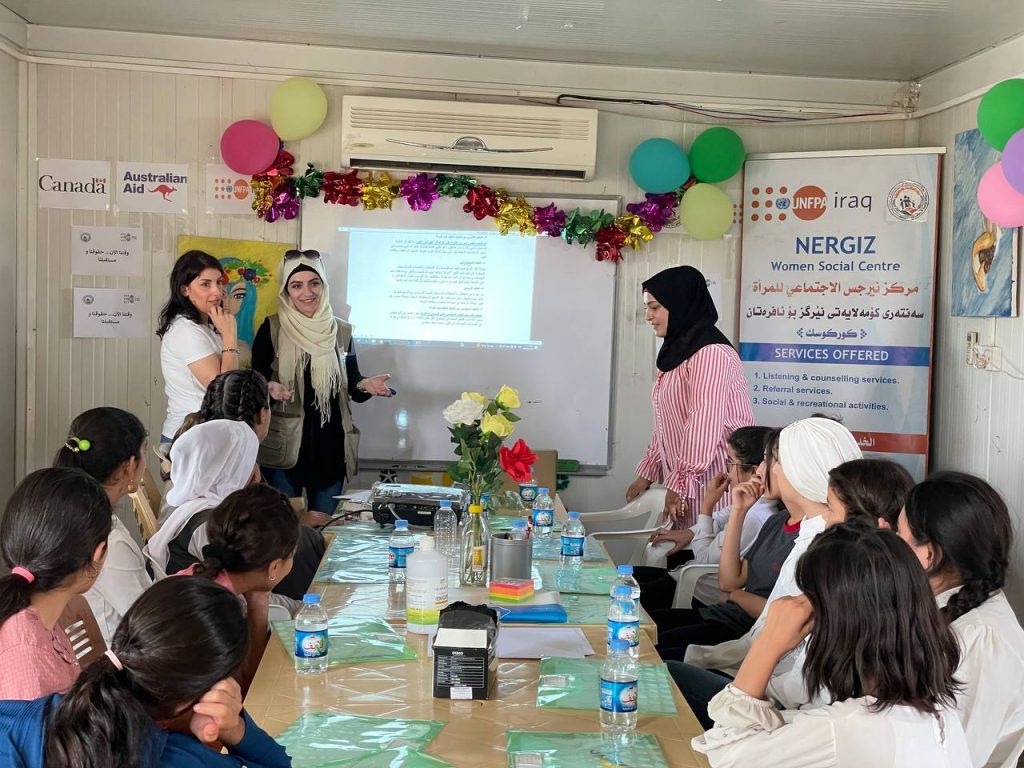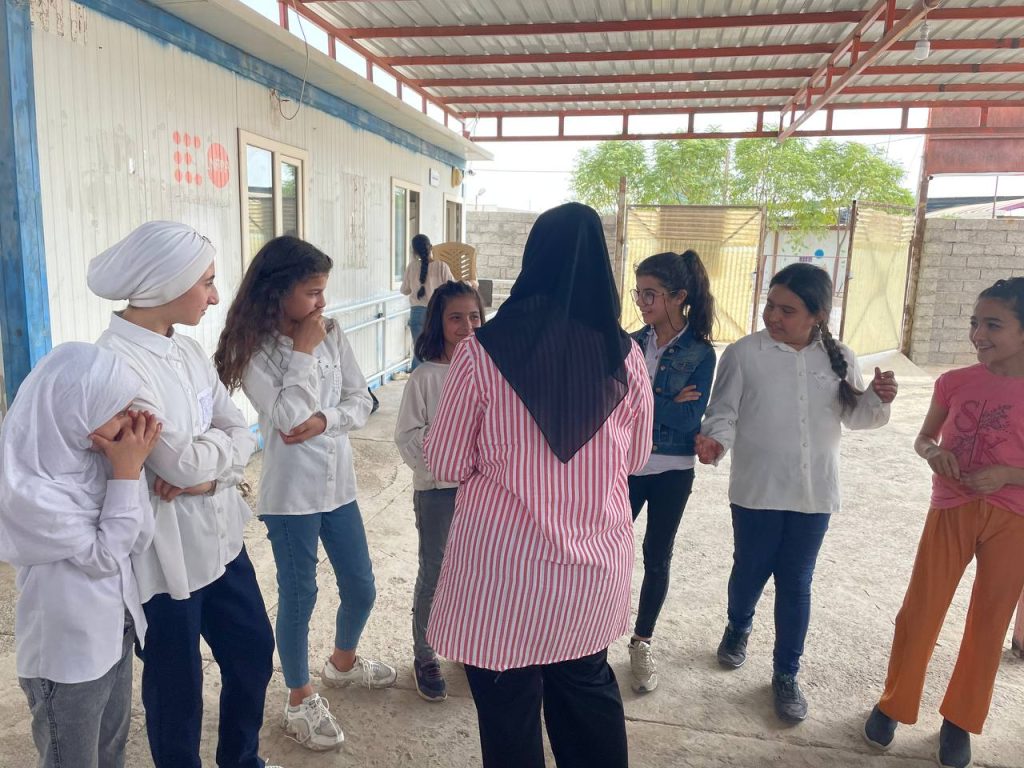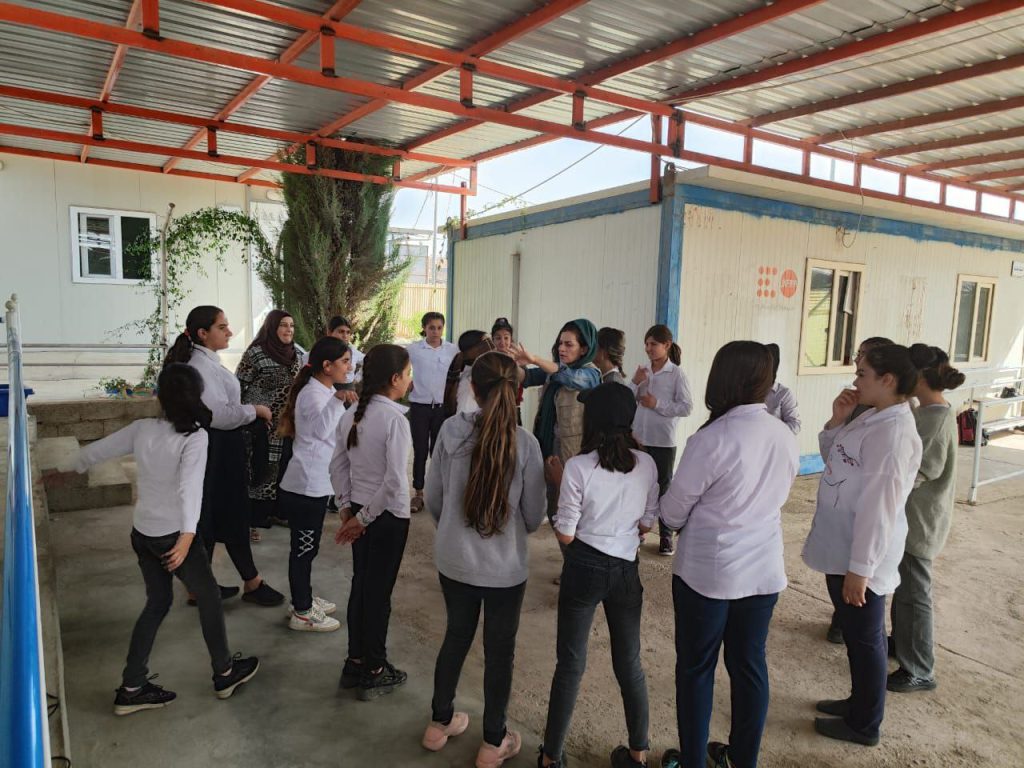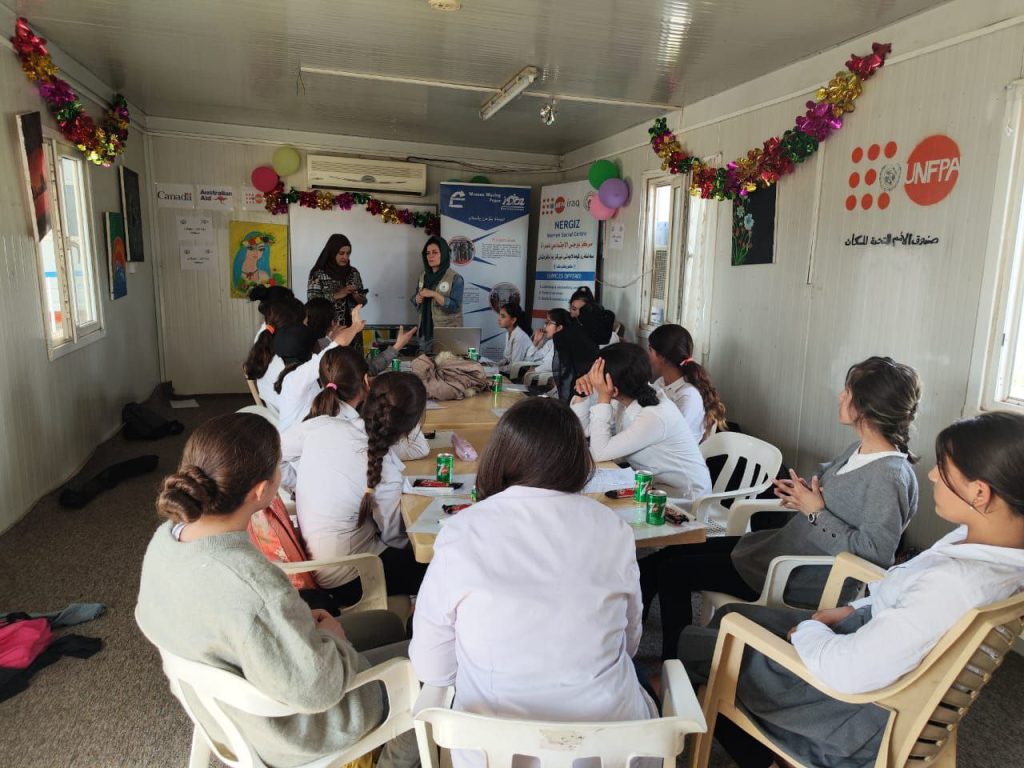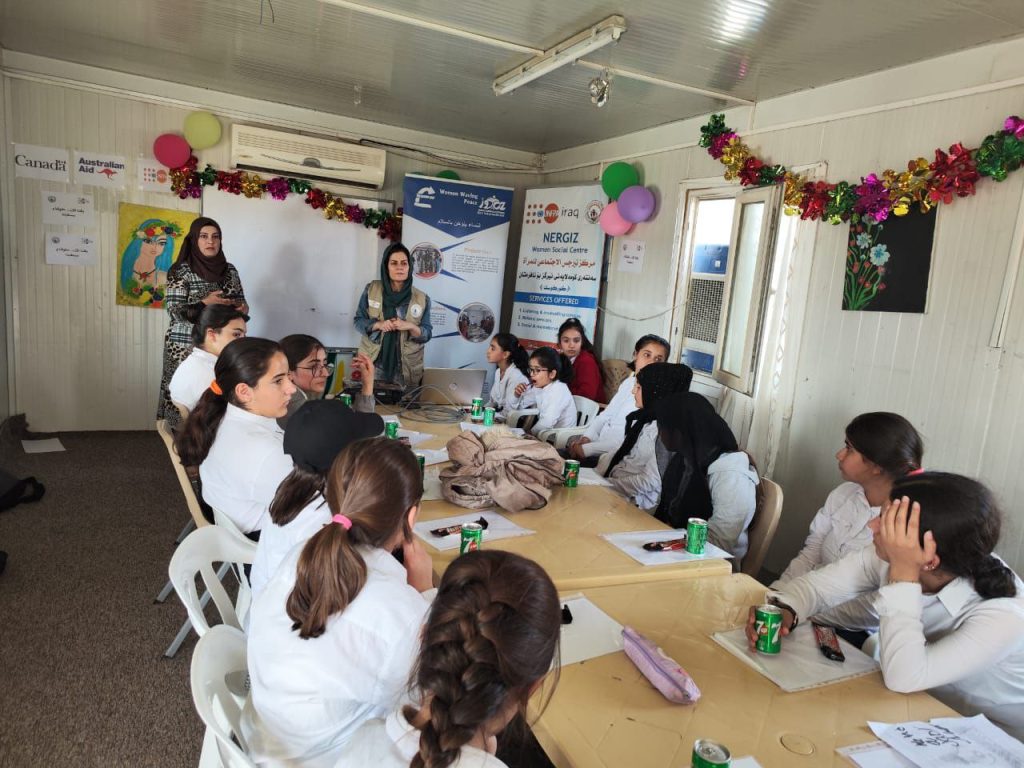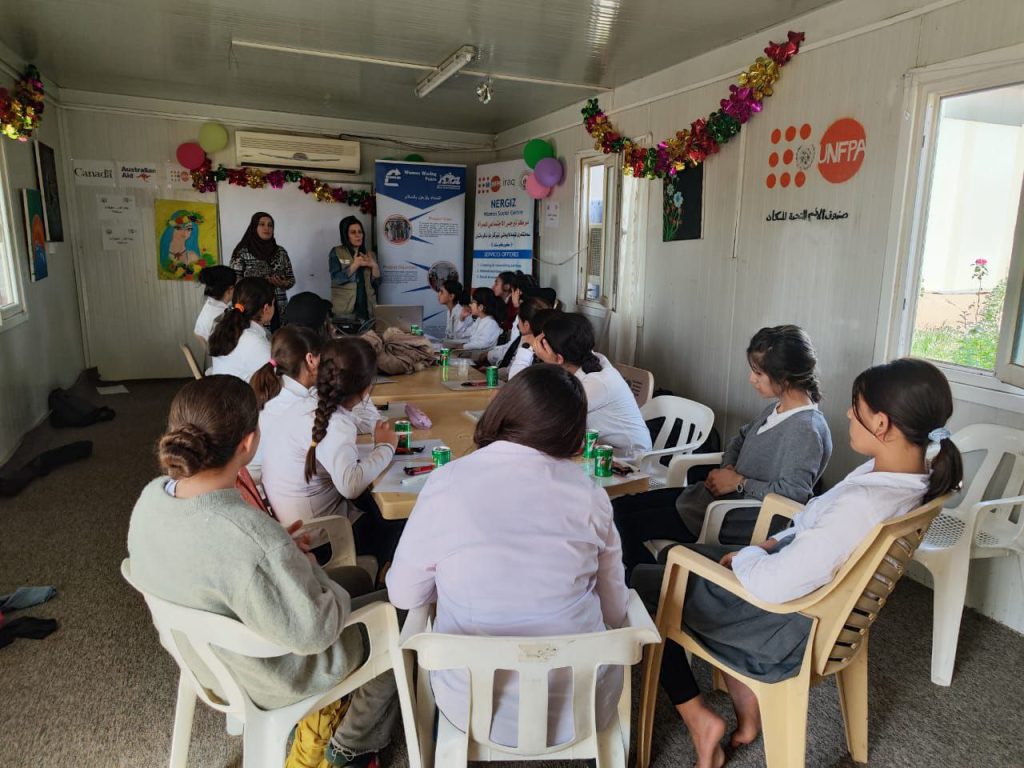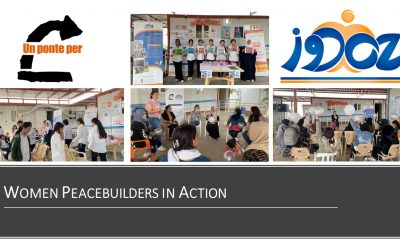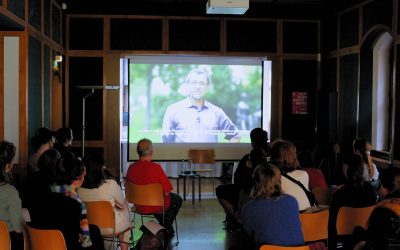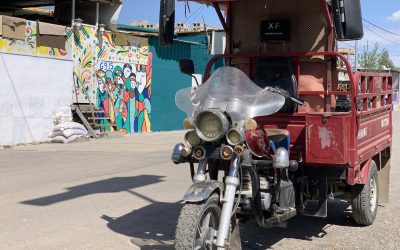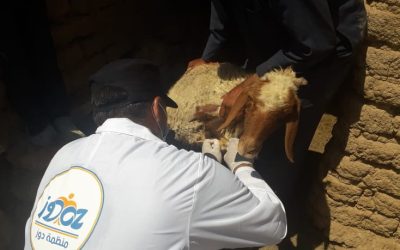Women Waving Peace – Iraq
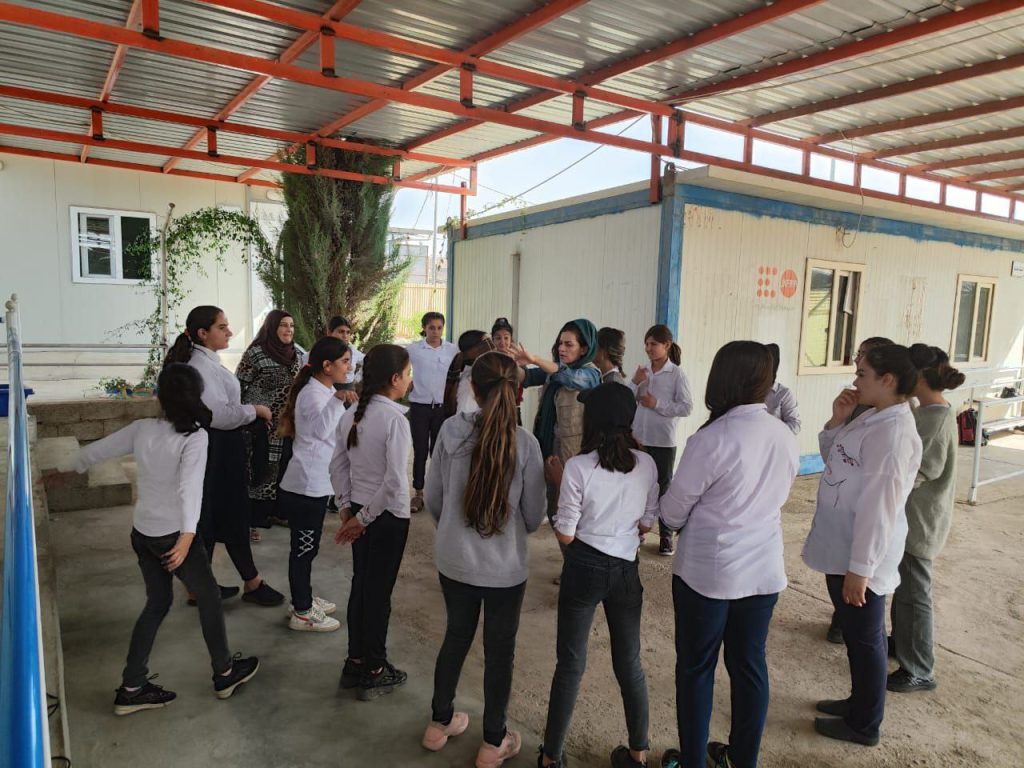
Project Summary
Duration of the project and period of implementation: July 2022 to December 2022
country: Iraq
The was supported by UPP- Un Ponte Per.
Activities Implemented and Goals Achieved Under This Project
Workshop on Community conflict management and Community Peace for the post-conflict phase.
The workshop lasted two days and had a total of 16 participants. This training workshop included numerous discussions and ideas about conflict and conflict types, as well as the steps and paths to peacebuilding. These were some of the workshop’s main topics, and they sparked a lot of discussion and feedback from the attendees.
The discussions that took place during the training workshop revealed that the participants do not have a clear understanding of the definition of conflict and do not know enough about the different types of conflicts. It was also discovered that the participants had limited knowledge of how to manage and analyze societal conflicts.
As a result, the trainees were introduced to conflict during this training workshop, which is defined as “a dispute between two or more parties who have a conflict of goals and interests and a difference in methods of dealing with the situation.” The conflict was explained as a result of inequality, marginalization, insecurity, and cultural and religious differences. The training workshop focused on “talking about societal conflicts” and “identifying societal conflicts,” which are conflicts that occur within one country or between different societal components with religious, national, political, regional, and other affiliations and orientations. The training workshop also included identifying the types of conflicts that can be positive or negative, and that can be between individuals, conflicts between families, conflicts between societies, and conflicts between countries. Many group activities were included in the training workshop for the participants. Participants may be introduced to the fundamentals of conflict analysis and conflict management paths through group work, in addition to many other topics covered in the training workshop, such as the identification of work paths by young people in the post-conflict stage.
Achieved Goals:
Many participants stated that the workshop helped them understand conflict knowledge and that the topics covered in the training workshop were very important. Young people should broaden their understanding of conflict and how to analyze it, as well as become acquainted with the methods and tools that aid in conflict resolution.
Furthermore, the participants gained more experience on how to analyze conflict using the conflict tree, which can lead to reconciliation. Furthermore, the participants confirmed that they were aware of the extent to which societal conflicts affect different societal groups, while emphasizing the importance of youth involvement in conflict analysis and resolution processes.
– Participants understand and know what the conflict is and can identify societal conflicts.
– Participants learned about different types of conflict.
– Participants learned about conflict characteristics as well as how to manage and analyze conflicts.
– Participants became aware of conflict escalation levels.
– Participants learned about conflict analysis and how to read a conflict tree.
– Participants gained knowledge of conflict intervention mechanisms and an understanding of conflict indicators.
– Participants understand reconciliation.
– Participants learned about post-conflict career paths.
– Participants learned about the effects of the conflict and how they impact societal stability.The presence of a group of young women with the desire and interest to contribute to the success of the workshop, as well as the timely delivery of training agneda, assisted the participants in identifying their needs in the fields of conflict management and analysis and peacebuilding-related paths.
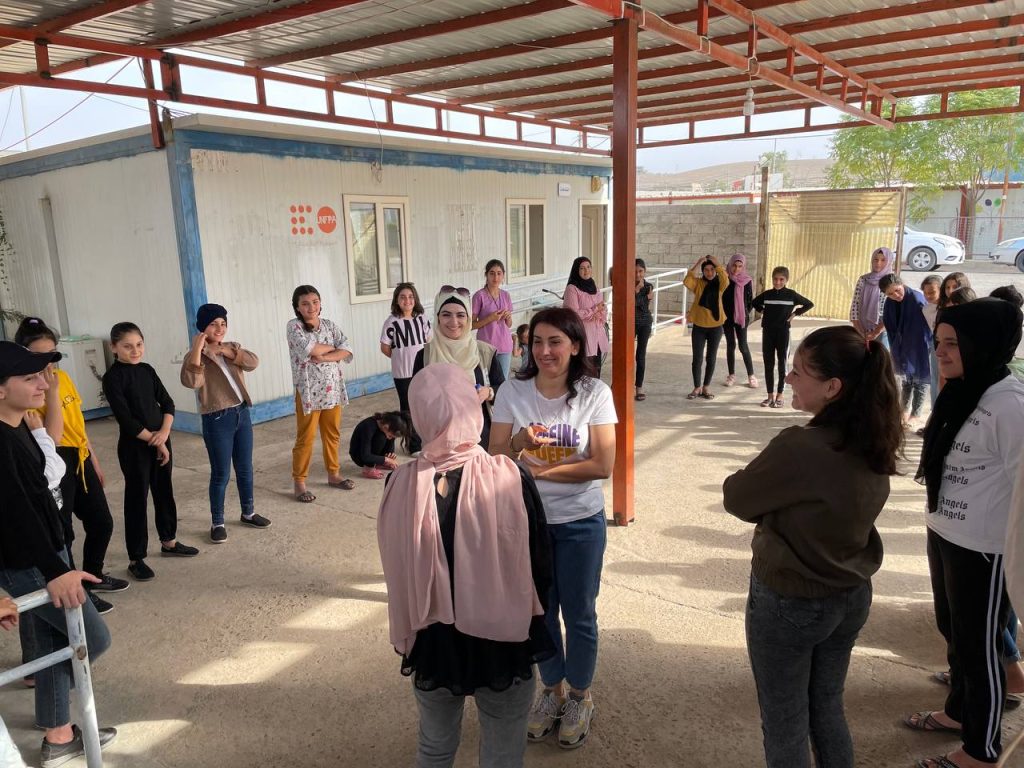
Workshop on UNSCR 2250 Resolution
Four training workshops were held in accordance with United Nations Security Council Resolution 2250 (UNSCR 2250), with 62 of young women participating. These training workshops focused on understanding the participants’ vision for the peacebuilding process and the role of youth in building peace in conflict situations, and then Resolution 2250 (Youth, Security, and Peace) was presented, in which the participants were introduced to the resolution’s background and the reasoning behind its issuance.
The training workshops also covered the role of Security Council Resolution 2250 in encouraging youth participation in the process of establishing peace, security, and decision-making, as well as opportunities for young people to contribute to the success of peacebuilding projects. Participants learned about peacebuilding strategies and how to connect them with youth, as well as how youth and youth movements play an important role in confronting violent extremism and transitioning from conflict to peace-building at the local and international levels.
Furthermore, the participants were introduced to the five basic provisions of (UNSCR 2250), and each item was presented and an explanation of the purpose of each provision of this resolution was provided.
Achieved Goals:
The trainees explained that through the training workshop they were able to know what the Youth Security Council resolution is, and they were able to know the provisions of the resolution and the extent to which Its importance, as the participants confirmed through their feedback that they were able to understand how youth resolutions are created and how they are implemented. Many of the participants described that it was the first time that they heard about a youth resolution, even though they did not have any information about UNSCR 2250.
The participants also expressed an interest in receiving trainings on the UNSCR 2250 that covered a longer period of time in order to learn all of the specifics pertaining to the resolution and comprehend the possibility of young people putting the resolution into action.
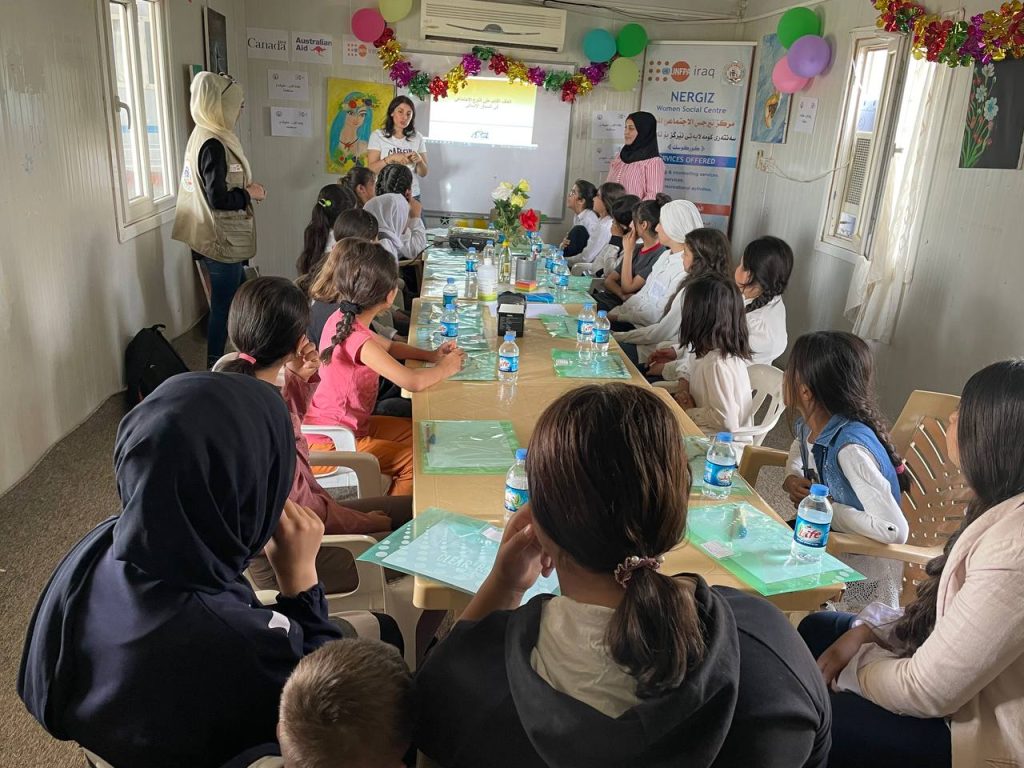
Teenagers’ Recreational Awareness Sessions
Six (6) recreational awareness sessions were conducted for adolescent girls, and a minimum of twenty participants between the ages of 13 and 17 attended each session. Throughout these sessions, a number of crucial issues that raise adolescent girls’ awareness were addressed. On social issues using various methods and approaches.
As a result of these activities, the topic of child marriage, a form of gender-based violence, was discussed. The extent of the prevalence of child marriage in society, particularly among refugee communities residing in camps, was a central topic of conversation with the participants.
Where the participants explained that, according to the refugee community surrounding them in the camp, one of the most common causes of early marriage is:
– The economic situation of families in the camps, and the phenomenon became more widespread during the Covid-19 period.
– The lack of space in the houses to accommodate the entire family, as they reside in small, informal homes.
– Lack of awareness among families; as the education process in the camp is unstable, the majority of families believe that the only option for girls is marriage in order to start a family.
– traditions and customs
In addition, a number of local and international laws supporting women and prohibiting child marriage were discussed. In contrast, the last sessions addressed other forms of gender-based violence, such as physical violence, which is also prevalent within families, and the issue of violence was discussed in greater depth. Participants emphasized that the lack of equal opportunities, the lack of integrated services, the economic situation, and the lack of education opportunities are among the most prevalent factors that contribute to the spread of violence within the refugee community.
To encourage participation and foster a sense of teamwork among the participants, the sessions incorporated a variety of motor activities. These activities took the form of sports activities during the sessions, drawing on the boards, role-playing exchanges, and other movement-based activities designed to foster trust among the participants and between the participants and the facilitators of the sessions.
In addition, he discussed the topic of one of the sessions on dialogue and the basic concepts of successful dialogue, where the participants were be able to understand the privacy of the dialogue through which a relationship of trust can be built between two parties for a period of time that may last decades, whereas negative dialogue can destroy any trust-building process and have a negative impact on the two parties participating in the dialogue. In addition to the open dialogues that occur during meetings, the participants learned about dialogues that can occur at the level of individuals, groups, the local, national, regional, and international levels.
Achieved goals:
Through the feedback from the participants, they expressed their interest in this type of session, as through it they were able to learn about many local and international laws that support women and defend their rights, the participants confirmed that through the sessions they had obtained the appropriate space for them In order to express their ideas and share their challenges in an appropriate manner, and that through the sessions they learned the benefits of teamwork as they were able through group discussions to exchange challenges, experiences and information and showed that they needed more opportunities for teamwork through this type of session.
The participants confirmed that they did not have information about the extent of the phenomenon of violence in society, that they had no idea what gender-based violence was, and that through the sessions they were able to obtain a clear understanding of gender-based violence and its types.
The participants confirmed that they also learned through the sessions the importance of dialogue and the best behaviors for the success of the dialogue, and that this will help them engage in more discussions with their families about the family challenges they face. They confirmed that they now have more information and experiences that they can transfer to their families in order to raise their awareness and educate them. In particular, issues of violence and marriage of minors, and talking with their families about the importance of discussions and dialogues.
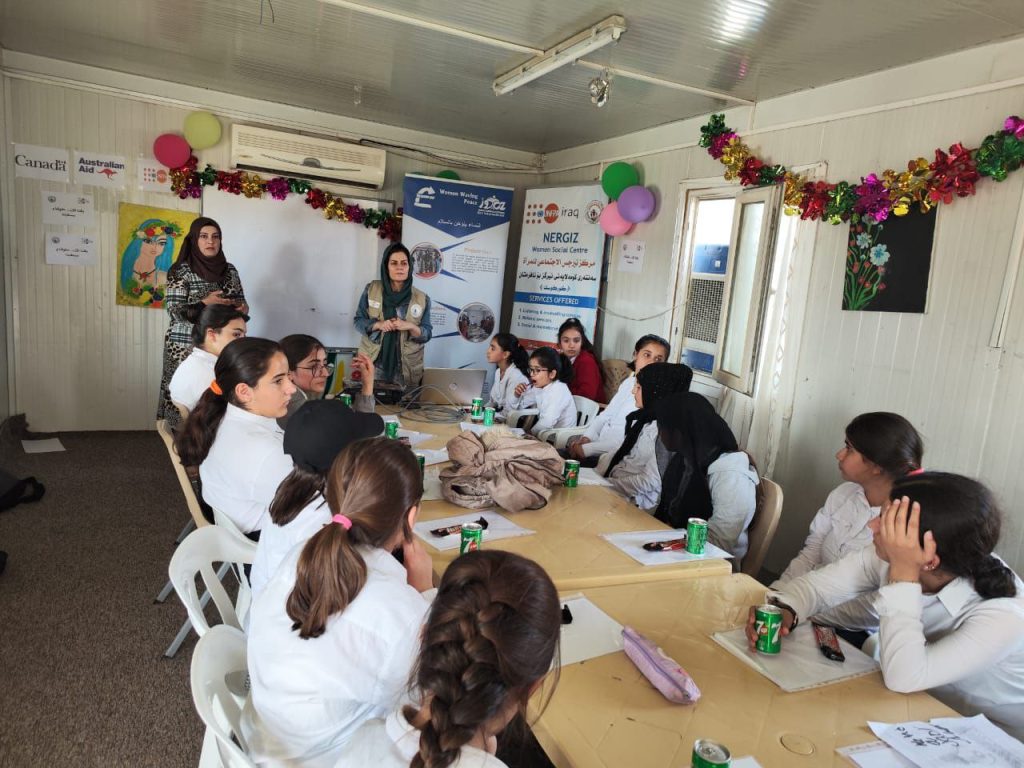
Participants in the sessions and workshops expressed an interest in obtaining more of this type of community-focused activities and a desire for these training workshops or sessions to be more in-depth and of a longer duration, as they require continuous sessions until they have the opportunity to participate in the various topics of interest.
The participants in the activities presented many ideas and initiatives that would raise awareness among the community in the camp about the issues of child marriage and gender-based violence, as well as initiatives that would target their families, but due to budget constraints, the ideas and initiatives that were presented could not be implemented.
